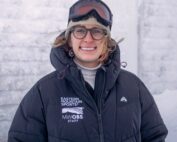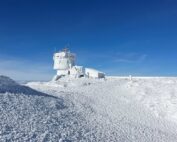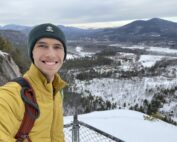The 411 About Meteorology
2014-01-14 19:08:15.000 – Tom Padham, Weather Observer/Meteorologist
NULL
Ever wonder what it takes to be a meteorologist? Meteorology, or the study of the atmosphere, is a complex science that has existed in the United States since the 18th century. Some of our founding fathers, including Thomas Jefferson and Benjamin Franklin actually kept their own personal records of the weather in personal journals. Meteorologists can go to work in many different areas after college, with government agencies, education, radio and television stations, airports, private consulting firms, and research services just to name a few of the more common areas (working at a mountaintop weather station is fairly unique). Many meteorologists do weather forecasting, but few meteorologist actually work at a television or radio stations and end up conveying the forecast live to the public.
Studying meteorology in college can be challenging (as I can personally attest to). Becoming a meteorologist requires a solid understanding of physics and math as well as the core meteorological classes. Meteorologists take up to Calculus 3 (multivariable calculus) and Differential Equations for mathematics, as well as typically general physics 1 and 2. Most meteorologists study thermodynamics, atmospheric dynamics, weather forecasting, and both large (synoptic) and smaller (meso and micro) scale weather phenomena as part of their core course list, with additional topics such as climatology, boundary layer meteorology, or broadcast meteorology depending on their personal choice of specialization. If you are looking to study meteorology professionally, study hard! It is a challenging field, but a very fascinating one that affects nearly everything we do on this planet.
Tom Padham, Weather Observer/Meteorologist
Geologist Climbs Rock Pile, Looks Up
Geologist Climbs Rock Pile, Looks Up By Bailey Nordin Hello from the summit of Mount Washington! My name is Bailey Nordin, and I am the newest Weather Observer and Education Specialist joining the team
Life on Top of New England
Life on Top of New England By Anna Trujillo Hi everyone! My name is Anna Trujillo and I am one of the interns for the MWOBS winter season. I am super excited for the
I Haven’t Seen a Tree in 12 Days
I Haven’t Seen a Tree in 12 Days By Ryan Steinke A photo of me hiking Cathedral Ledge during my first off week. Hi everyone, my name is Ryan Steinke, and I




